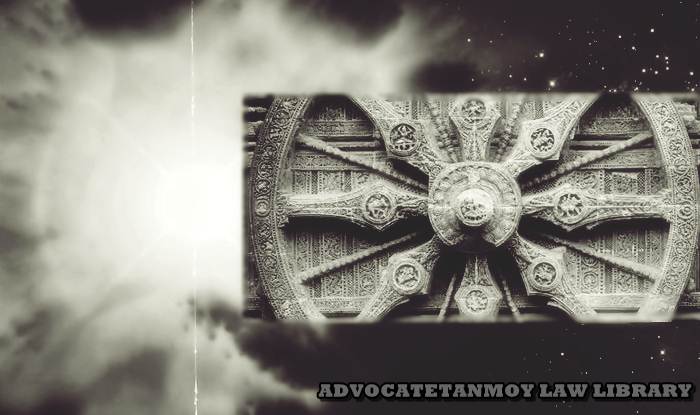
Union of IndiaIndia Bharat Varsha (Jambu Dvipa) is the name of this land mass. The people of this land are Sanatan Dharmin and they always defeated invaders. Indra (10000 yrs) was the oldest deified King of this land. Manu's jurisprudence enlitened this land. Vedas have been the civilizational literature of this land. Guiding principles of this land are : सत्यं वद । धर्मं चर । स्वाध्यायान्मा प्रमदः । Read more & Anr. vs Deoki Nandan Aggarwal, 1992 AIR SC 96
The Supreme CourtSupreme Court The Court of last resort. Supreme Court of India (26/01/1950), Supreme Court of USA (1798), Supreme Court of UK (1/10/2009), Supreme Court of Canada (1949), International Court of Justice (22/05/1947), > Supreme Court Network in Deoki Nandan Aggarwal, inter alia observed:
“It is not the duty of the court either to enlarge the scope of the legislation or the intention of the legislature when the language of the provision is plain and unambiguous. The court cannot rewrite, recast or reframe the legislation for the very good reason that it has no power to legislate. The power to legislate has not been conferred on the courts. The court cannot add words to a statute or read words into it which are not there.
Assuming there is a defect or an omission in the words used by the legislature the court could not go to its aid to correct or make up the deficiency. Courts shall decide what the law is and not what it should be. The court of course adopts a construction which will carry out the obvious intention of the legislature but could not legislate itself.
But to invoke judicial activism to set at naught legislative judgmentJudgment The statement given by the Judge on the grounds of a decree or order - CPC 2(9). It contains a concise statement of the case, points for determination, the decision thereon, and the reasons for such decision - Order 20 Rule 4(2). Section 354 of CrPC requires that every judgment shall contain points for determination, the decision thereon and the reasons for the decision. Indian Supreme Court Decisions > Law declared by Supreme Court to be binding on all courts (Art 141 Indian Constitution) Civil and judicial authorities to act in aid of the Supreme Court (Art 144) Supreme Court Network On Judiciary – Portal > Denning: “Judges do not speak, as do actors, to please. They do not speak, as do advocates, to persuade. They do not speak, as do historians, to recount the past. They speak to give Judgment. And in their judgments, you will find passages, which are worthy to rank with the greatest literature….” Law Points on Judgment Writing > The judge must write to provide an easy-to-understand analysis of the issues of law and fact which arise for decision. Judgments are primarily meant for those whose cases are decided by judges (State Bank of India and Another Vs Ajay Kumar Sood SC 2022) is subversive of the constitutional harmony and comity of instrumentalities. Vide P.K. Unni v. Nirmala Industries [(1990) 2 SCC 378, 383- 84 : (1990) 1 SCR 482, 488] , Mangilal v. Suganchand Rathi [(1964) 5 SCR 239 : AIR 1965 SC 101] , Sri Ram Ram Narain Medhi v. State of Bombay [1959 Supp 1 SCR 489 : AIR 1959 SC 459], Hira Devi (Smt) v. District Board, Shahjahanpur [1952 SCR 1122, 1131 : AIR 1952 SC 362] , Nalinakhya Bysack v. Shyam Sunder Haldar [1953 SCR 533, 545 : AIR 1953 SC 148] , Gujarat Steel Tubes Ltd. v. Gujarat Steel Tubes Mazdoor Sabha [(1980) 2 SCC 593 : 1980 SCC (L&S) 197 : (1980) 2 SCR 146] , G. Narayanaswami v. G. Pannerselvam [(1972) 3 SCC 717 : (1973) 1 SCR 172, 182] , N.S. Vardachari v. G. Vasantha Pai [(1972) 2 SCC 594 : (1973) 1 SCR 886] , Union of India v. Sankal Chand Himatlal Sheth [(1977) 4 SCC 193 : 1977 SCC (L&S) 435 : (1978) 1 SCR 423] and CST v. Auriaya Chamber of Commerce, Allahabad [(1986) 3 SCC 50, 55 : 1986 SCC (Tax) 449 : (1986) 2 SCR 430, 438] . Modifying and altering the scheme and applying it to others who are not otherwise entitled to under the scheme, will not also come under the principle of affirmative action adopted by courts sometimes in order to avoid discrimination. If we may say so, what the High CourtHigh Court High Court Judges in England and Wales handle complex and tough cases, sitting in London and traveling to court centers around the country. They preside over serious criminal and important civil cases, and support the Lord and Lady Justices in hearing appeals. High Court Judges are commonly referred to as ‘Mr/Mrs/Ms Justice surname’ and are given the prefix ‘The Honourable’. They are assigned to the King’s Bench Division, the Family Division, or the Chancery Division. The King’s Bench Division focuses on civil wrongs and judicial review, the Family Division deals with family law, and the Chancery Division handles various cases including company law and probate. Judges are appointed through a rigorous process overseen by the Judicial Appointments Commission. has done in this case is a clear and naked usurpation of legislative power”. (emphasis supplied)